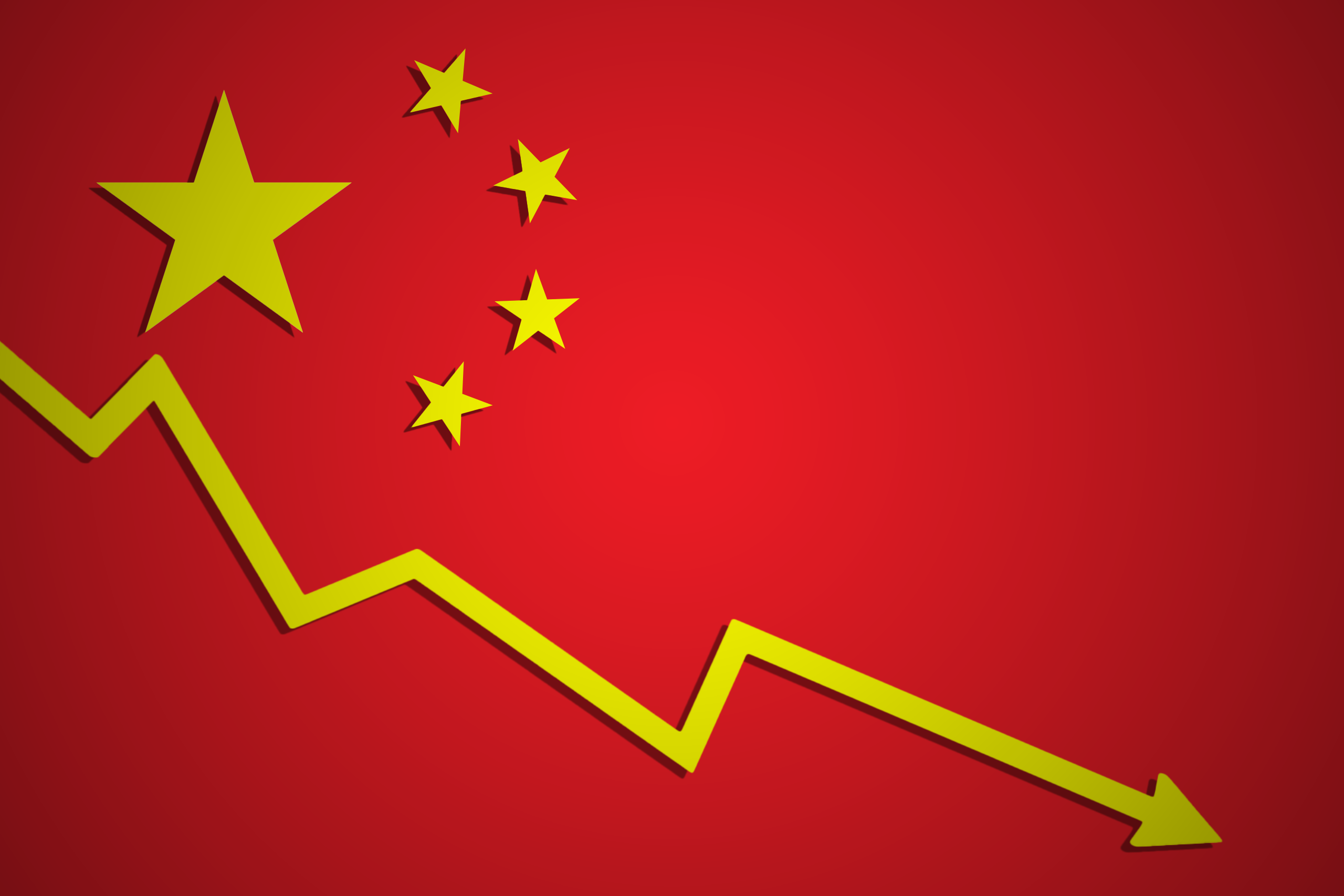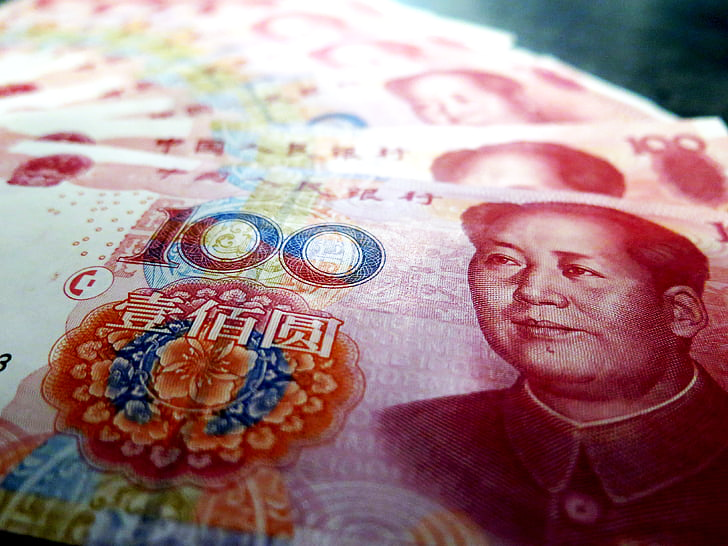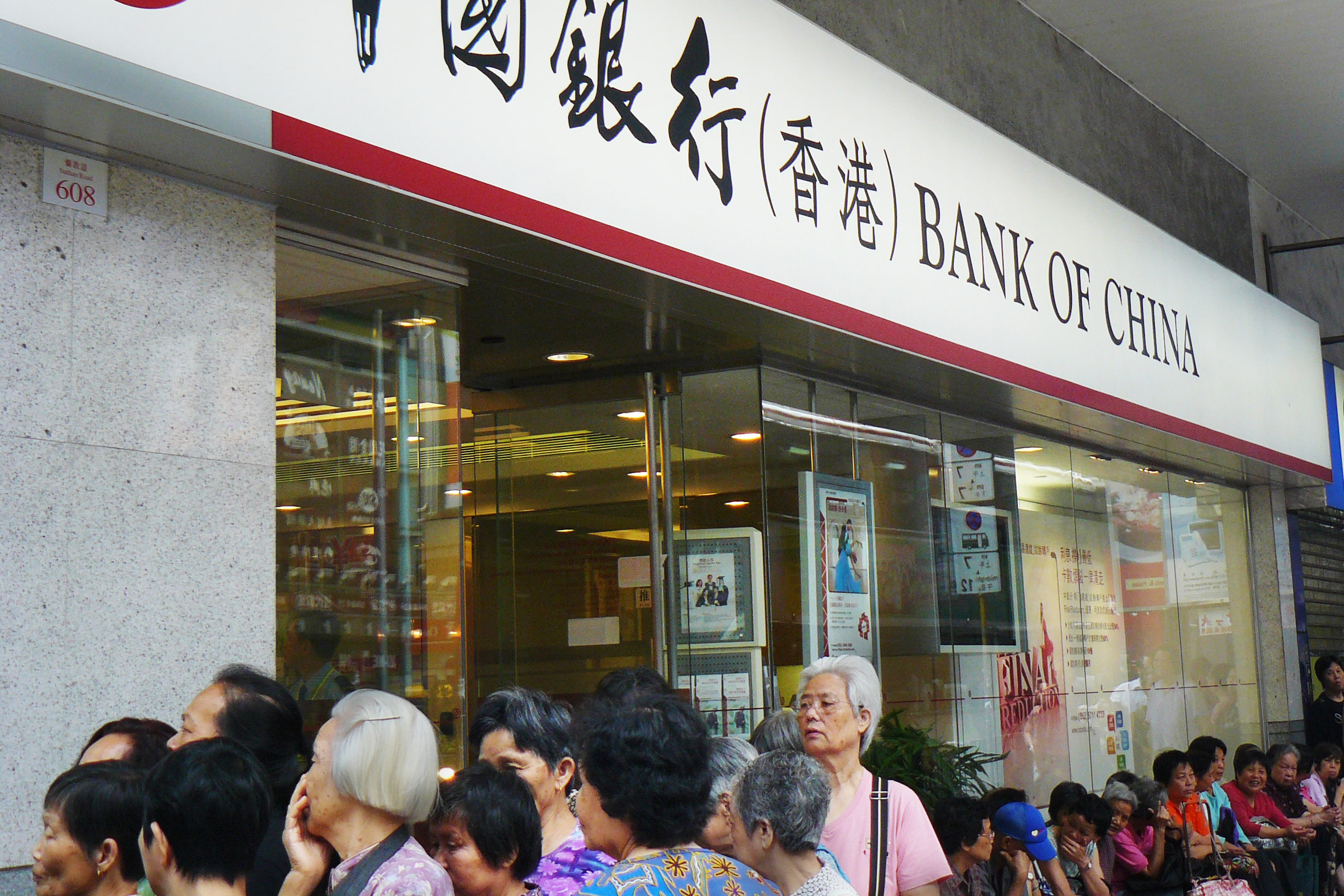Since the collapse of Chinese real estate conglomerate Evergrande, the second-biggest economy in the world entered a slow-motion crisis that has expanded into other sectors. This crisis has now reached the sphere where the debts are issued: the banks.
The warning signs
“I’m here to withdraw my own money, yet you tell me all about my overdue payments [and refuse to give me any money]. If my mother dies [because I can’t pay for her treatments], I will come to and hang a wreath here as well!”
On New Year's Eve, 9 February 2024, a middle-aged man stood in the lobby of a bank and shouted the above in grief. The more he talked, the more agitated he became, and finally broke down and cried, because he could not withdraw the money he had deposited in the Bank of the Central Plains.
2月9日,一男子存在中原银行的钱取不出来。母亲住院又着急用钱,男子崩溃大哭 pic.twitter.com/fzCKVJUJ2a
— 李老师不是你老师 (@whyyoutouzhele) February 9, 2024
At the same time, his mother is hospitalised and in urgent need of money. This is not an isolated case. In Pingdingshan, Henan Province, major banks are beginning to experience difficulties in withdrawing money. Online, people across China are complaining about the difficulty of withdrawing cash.
At present, Chinese banks are harshly restricting the outflow of funds. Some bank accounts are frozen if they are not used for several months; the elderly who are terminally ill are required to come to the counters to withdraw their money in person; and relatives who take out deposits from the accounts of the deceased are encountering all manner of obstacles. All of this is undoubtedly sending a dangerous signal: China's banking system might be facing a serious shortage of funds.
This is putting further pressure on the already fragile livelihoods of ordinary working people, with small businesses or individuals experiencing cash crunches and even going under as a result of the impact. If this difficulty in accessing money continues and intensifies, it could be followed by a panicked run on the banks, leading to more bank failures.
There have been such cases in the past. The collapse of the Henan Village Bank began when depositors found it difficult to withdraw their money. In October last year, there was a run on the Cangzhou Bank in Hebei province. The bank had lent money to Evergrande, but when the latter defaulted on its debts, this made depositors fear for their savings.
But the current crisis is by no means a matter of a few banks failing. These signals point to a looming crisis in China's entire banking system.
Debt and lending in the Chinese banking system
Combining the Bank of China's report and data from Sierras Data and Information Co Ltd., the total deposits in the Chinese banking system are around RMB 284 trillion. As of 15 December 2023, according to the central bank, the balance of loans in the Chinese banking system exceeded RMB 200 trillion. 200 trillion yuan of loans is fast approaching a size comparable to the total deposits of the Chinese banking system. The total loan balance of financial institutions in 2023 was $230 trillion (half of which is owed for property).
However, the debt of the Chinese society is far more than 200 trillion. According to multiple estimates, the overall debt size of the Chinese state is optimistically and conservatively estimated at more than 350 trillion, while bolder estimates put it at 400 trillion. A major portion of the debt is constituted by about 115 trillion in real estate sector liabilities and about 80-90 trillion in local government liabilities in the urban investment plus official accounts, respectively. Together these were already at 150 percent of GDP in 2023. The rest is central debt and loans to residents. The pressure of this debt will undoubtedly converge through the nerves of the financial system to the core of the banking system.
During the property boom, lending money to property owners was a lucrative business, and banks, big and small, wanted to get in on the action. Many of them even took out loans from other banks before lending money to property developers or other capitalists. As a result, the total amount of money lent out by a bank may even exceed the bank's total assets, which is the bomb that the bank planted for itself during the growth period.
Now this has proceeded to the point where many small banks are in a high-risk situation, the central bank has begun to limit capital injections into small banks to slow the contagion of the crisis to the head of the financial system. The Chinese government has also begun planning to merge hundreds of village banks into larger regional banks to eliminate their non-performing loans. But this is more of a struggle amid a bleak outlook. Reuters reported:
"Although roughly 4,000 small banks are not by themselves seen as a systemic risk, the concern is that enough of them have largely funded themselves via short-term money market borrowing, posing a collective danger in the event a few of them fail" (our emphasis).
When will the shoe fall?
 The current crisis is by no means a matter of a few banks failing / Image: own work
The current crisis is by no means a matter of a few banks failing / Image: own work
At present, the larger banks are not yet as exposed as the smaller ones. But this is really only the beginning. In the past year, we have seen the bankruptcy of shadow banking giant Zhongzhi and the default of Haiyin Wealth, China's third-largest wealth management organisation. Zhongzhi's investments in property backfired on itself. Haiyin Wealth also suffered a final crash when its assets could not be redeemed due to the economic downturn, leading to a break in the capital chain, with activists eventually gathering under the company's main building to demand compensation.
Then there is the ongoing implosion of the real estate sector, which is only getting worse, as we have previously reported, and is now converging with other crises to create a backlash and new struggles by the masses.
In cases where local governments are highly indebted but unable to repay the banks, they will mortgage land to the banks, which will have to evict the people living on it. Or they will still need infrastructure to make their unsightly accounts as manageable as possible, and so will have to get real rights to use the land. Either way, this creates a conflict between the government and the oppressed masses around the seizure of land.
For example, in Ganzi, Sichuan, monks and Tibetans kneeled down en masse to plead with government workers not to demolish temples and villages. and the remaining seizure of farmland. Ironically, the central government is shouting at the top of its voice to hold the line on farmland. A related report in Foreign Policy in February said the following:
"As in many other countries, such as the United States and India, a major cause for China’s farmland deterioration has been its land-intensive industrialization and urbanization over the past three decades. Farmland has been expropriated to meet the strong demand for land to support the expansion of manufacturing, infrastructure, and urban development. Competing interests for land use have resulted in arable land being expropriated for more lucrative development projects. In the contest for land use among food growers, cash-crop planters, and property developers, profit maximization often trumps the needs of food farmers, especially when imported foods are much cheaper than locally grown options."
China's economy as a whole has entered a downturn, and evidence of deflation is everywhere. Production is shrinking, unemployment is climbing, especially among the young, to a decades-long high, and foreign investment is being withdrawn dramatically.
The Financial Times points out that China is facing a dangerous combination of deflation and debt. A large amount of debt maturing but not being able to be repaid will hamper demand, coupled with a recession leading to a diminished willingness to invest, which will accelerate the pace of the crisis. Even the possibility of a Great Depression has been written about by some analysts.
These signals of crisis from all directions coalesce into a general crisis of the banks, the crisis of the Chinese government, the crisis of capitalism and the class struggle.
An unsolvable dilemma under capitalism
 As we’ve seen already in the West through the experience of quantitative easing, a mere injection of currency will solve nothing / Image: public domain
As we’ve seen already in the West through the experience of quantitative easing, a mere injection of currency will solve nothing / Image: public domain
At present, the world's bourgeois economists have noticed the risks of the Chinese banking system. On the one hand, China, as the world's factory, occupies an important position in the global production chain. And on the other hand, the Chinese banking system, as the world's largest, is close to the nerves of the global economy. Therefore, a possible banking crisis in China is bound to affect the world market.
An easy monetary policy has been suggested. The Chinese government is also currently planning a huge wave of bailout funds. But as we’ve seen already in the West through the experience of quantitative easing, a mere injection of currency will solve nothing.
The fundamental contradiction of capitalism has always been between socialised production and the means of production under private ownership, which repeatedly leads to overproduction and economic crises. The only way to break this endless cycle of crisis and chaos is to break with the capitalist system through a socialist revolution.


